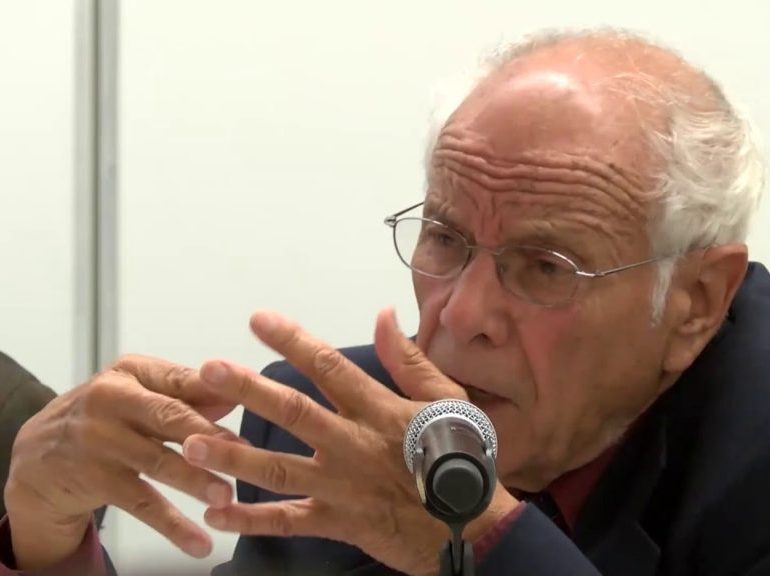
Paul Hollander, In Memoriam
by Lee Edwards
Paul Hollander devoted much of his life and his academic career to telling the truth about communism. The main title of the classic work he published in 1981 instantly entered the discourse. It was called Political Pilgrims: Travels of Western Intellectuals to the Soviet Union, China and Cuba, and in it Dr. Hollander documented that leading liberals were most favorable in their assessments of those three regimes precisely when their respective communist leaders were at their most destructive: the Union of Soviet Socialist Republics during the Stalinist purges of the 1930s; China during the bloody Cultural Revolution of the 1960s; and Cuba during the 1960s when the Isle of Pines prison overflowed with political prisoners, many of them former comrades of Fidel Castro.
These “objective” scholars made excuses, overlooked monstrous crimes, argued that communist and capitalist societies would somehow converge, and substituted their utopian dreams for the nightmare reality of communist dictatorships. Hollander, himself a professor at the University of Massachusetts Amherst, was never fooled, and never allowed intellectuals of the Left to forget how they had allowed themselves to be fooled.
He came by his anticommunism naturally, having been born in communist Hungary and escaped following the Hungarian Revolution of 1956 with only the leather jacket on his back. After earning degrees at the London School of Economics and Princeton, he taught at Harvard before settling in at UMass Amherst to teach political sociology.
Anne Applebaum, in her introduction to another Hollander work (2006’s From the Gulag to the Killing Fields), salutes the author for his collection of memoirs by those who had personally experienced the violence and repression of communism. She points out that Dr. Hollander enables us to see the direct line from Vladimir Lenin to Josef Stalin, from to Mao Zedong to Ho Chi Minh and Pol Pot, from Castro to the People’s Movement for the Liberation of Angola.
Among Hollander’s associations was the Victims of Communism Memorial Foundation, of whose national advisory board he was a founding member. He was until recently an active participant in its events, particularly its annual Roll Call of Nations, when dozens of foreign ambassadors and representatives of ethnic groups gather in Washington, D.C. to lay a wreath for those in their native countries who had suffered and died under communism.
Sympathetic Western intellectuals often envisioned the communist states as heirs to the goals and traditions of the Enlightenment or a humane socialism. Such gross misconceptions were shaped by ignorance and wishful thinking, traits not shared by Dr. Hollander, who wrote that under communism:
The centralized economy did not lead to efficiency except in meeting the needs of the military; indoctrination did not produce loyalty in the long run; repression stifled initiative. . . . ; low wages and salaries undermined incentives . . . ethnic tensions were not eliminated, only suppressed. Last but not least, every communist system failed to achieve its proudest claim: the creation of a new, more ethical human being.
As scholar and teacher, Paul Hollander was as fearless as he was meticulous, and set the highest possible standard for truth-telling about communism, the most deadly “ism” of the 20th century.